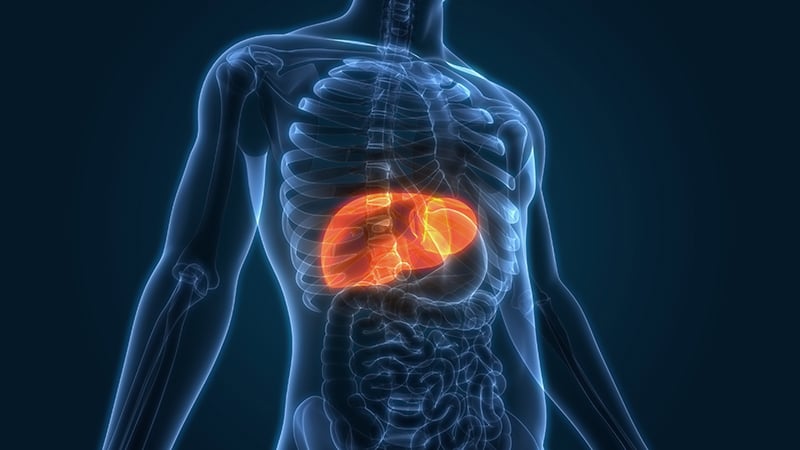
Liver Cancer Warning Signs
Liver cancer is still the leading cause of all cancer-related deaths. It is the most common form of cancer in men and the third most common in women. Once diagnosed with liver cancer, there is an 87% chance of mortality and only 13% chance of survival. Warning signs include weight loss, indigestion, and bloating. Be aware to prepare and prevent yourself from liver cancer.
Knowing your Liver
The liver is the largest internal organ inside the human body. Its job is to store necessary nutrients which have been absorbed in the intestines and put them to good use by metabolizing them for energy or repairing various organs. The liver will also release bile into the intestines to help with absorption, especially fats and also digest fat, drugs, and toxic wastes so that it can be excreted via urine and feces.
The liver is composed of many different types of cells, such as hepatocytes, endothelial cells, and cholangiocytes, which extend into the bile duct. The bile duct releases bile into the biliary tract and the duodenum. Should there be any mutation in any of these cells, they can become a tumor or uncontrolled growth that our body cannot control. They will spread in the liver and metastasize to other organs. Since cancerous cells can arise from different causes, treatment and prognosis will also be different.
Liver Cancer
Liver cancer consists of cancer that arises from the liver cells. In Thailand, the two most common types are:
- Cholangiocarcinoma is the cancer of the epithelial lining of the biliary tract inside the liver. It is caused by liver fluke and is commonly found in the Northeastern region of Thailand. Particularly, certain types of diets will contribute to cancer because they contain cancer-causing agents, such as nitrosamine, which is commonly found in fermented food and smoked food. There is still no good screening test for cholangiocarcinoma, while treatment is quite challenging and often has poor outcome. Therefore, prevention by abstaining from consuming raw fresh water fish and nitrosamine-containing food is best.
- Hepatocellular Carcinoma is commonly found throughout Thailand. The main cause of hepatocellular carcinoma is hepatitis B and C infections, which can be transmitted via blood, such as from mother to unborn baby and sexual activities. Once the virus enters the hepatic cells, the person can have chronic liver inflammation or become asymptomatic carrier. Other factors that contribute to cancer includes cirrhosis due to excess alcohol consumption, fatty liver disease, exposure to aflatoxin in peanuts, dried chilis, garlic, or grains. Aflatoxin is a coactivator to promote hepatocellular cancer in patients who have hepatitis B virus infection. Prevention can be done by getting hepatitis B vaccine and avoid exposure via blood or sexual relations with people at risk for hepatitis. The liver is also the site for metastasis of other types of cancer. It is commonly found in the western countries than in Asia.
Symptoms of Liver Cancer
Early-stage liver cancer tends to be silent. However, as the cancer grows, patients may experience
- Fatigue
- Loss of appetite
- Weight loss
- Indigestion
- Pain around the lower right rib
- Heartburn
- Radiating pain to the right shoulder or under the right shoulder blade
As the cancer ravages the liver or causes clogged biliary tract, the patient may experience
- Jaundice
- Yellowish tinge to the white of the eyes
- Dark color urine
- Bloating
- Swollen legs
- Low grade fever of unknown cause
***In later stages, the cancer may spread to other organs, such as the bones.
Liver Cancer Diagnosis
There is not yet a good way to screen for cholangiocarcinoma, but hepatocellular carcinoma and liver cancer, evidence has shown that screening can be done through ultrasound or alpha-fetoprotein (AFP) blood test every 6 – 12 months. Once an abnormal mass is discovered in the liver, diagnosis can be done by CT scan or MRI. Some patients may require biopsy for diagnosis.
Liver Cancer Treatment
Liver cancer treatment requires a multidisciplinary team of specialists to find a suitable treatment for each patient. Liver cancer can be treated by various methods, including surgery. However, since liver cancer is often discovered in patients with chronic liver disease or cirrhosis, surgery can only be performed in about 20% of the cases where the mass is not too large. If the cirrhosis is widespread, the patient may require a liver transplant, which is not quite popular in Thailand due to a small donor pool. If the liver mass is large or there are numerous masses present, surgery may not be performed, and chemotherapy will be necessary. Personalized treatment with various targeted therapies has been accepted to produce the best results for hepatocellular carcinoma because the drugs will specifically target the cancer cells. Research has shown that precision medicine by testing for specific genes associated with liver cancer can lead to more effective treatment and immunotherapy can also be used for treatment.
Screening for Liver Cancer
Because early stages of liver cancer tend to be asymptomatic, once the symptoms start to show, the chance of a cure is quite slim. Thus, screening or surveillance for early detection of liver cancer will lead to best outcome. Early liver cancer treatment can be done through radiofrequency ablation by inserting a small needle into the mass to deliver microwave radiation. This method works well for masses smaller than 3 centimeters.
In larger liver masses or in the presence of multiple lesions that cannot be resected, chemotherapy and blood vessel blocking agents to cut blood supplies to the tumor can be injected through a catheter inserted through the groin or arm in a technique known as transarterial chemoemboliztion (TACE) or transarterial oil chemoembolization (TOCE). The only difference between the two is whether the chemotherapeutic agent is mixed with a radio-opaque contrast agent or not. A radio-opaque contrast agent can block blood supplies to the tumor mass, but multiple injections may be necessary. The doctor will inject radioactive substance into the hepatic artery to view the mass in a process called SIRT or selective internal radiation therapy. This type of treatment is suitable for liver cancer thathas spread to the hepatic veins.
Another advancement in liver cancer treatment is radiation therapy. Currently, 3D or 4D radiotherapy can be delivered at high dose and more precisely to decrease damage to normal liver tissue. Thus, stereotactic body radiotherapy (SBRT), a technique that uses x-rays through linear accelerator to destroy the tumor cells. Heavy ions or protons can also be used to liver cancer treatment due to their short, but concentrated radiation exposure.
Preventing Liver Cancer
- Cholangiocarcinoma can be prevented by avoiding liver fluke infections and consumption food that contains nitrosamine.
- Hepatocellular carcinoma can be prevented by getting hepatitis B vaccine. Avoid contracting HBV and HCV infections through blood contact or sexual relations. People have higher risk of hepatocellular carcinomas are those who were infected with HBV, and have chronic liver inflammation due to HBV and HCV. Those who have liver cirrhosis should get follow up with ultrasound and AFP blood test every 6 months.
Liver cancer is preventable if the patient receives screening or surveillance. Early detection leads to higher chance of a cure. Patients should choose a hospital that has multidisciplinary team of specialists for the best treatment outcome so that they can return to their normal lives.

